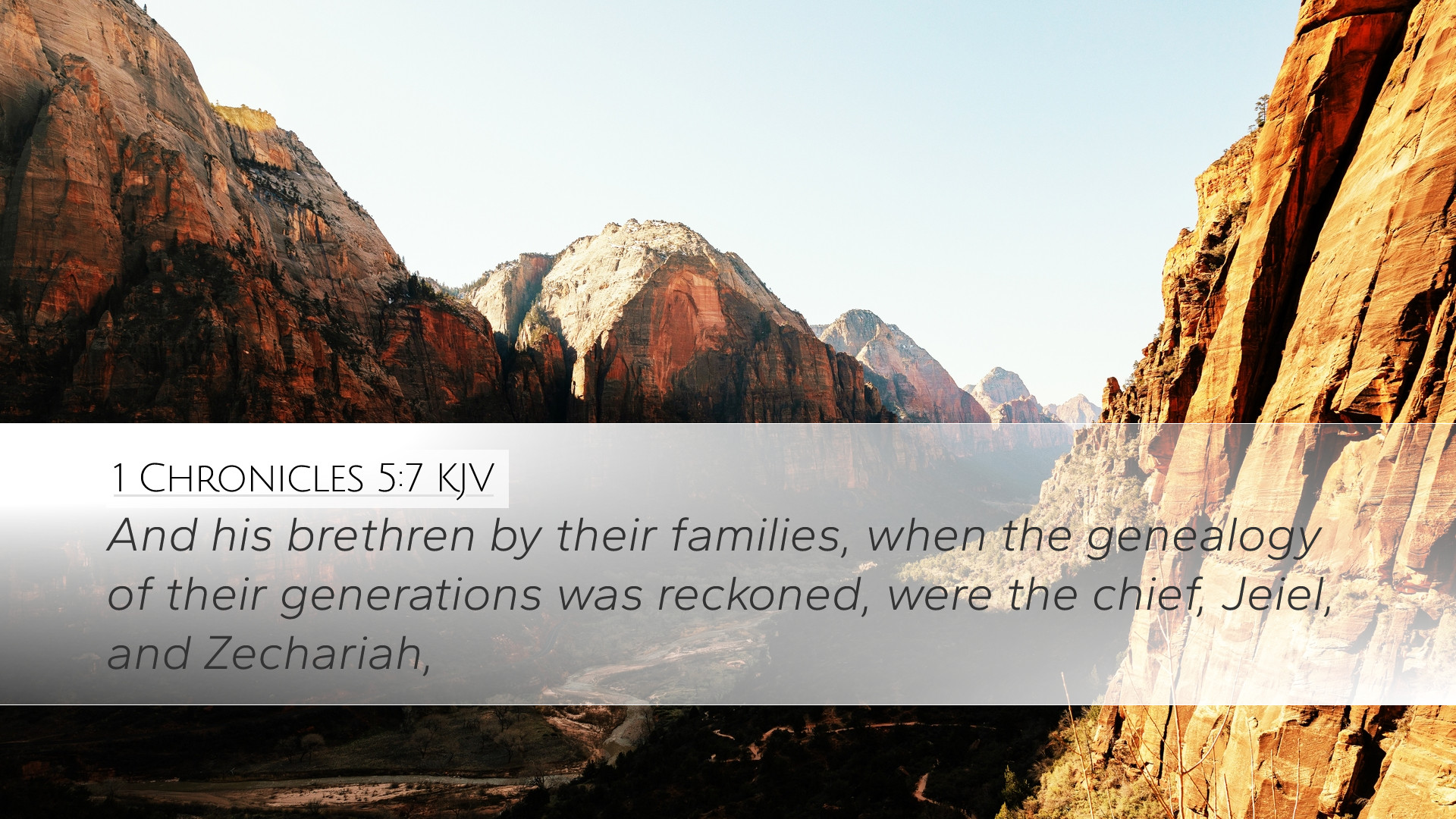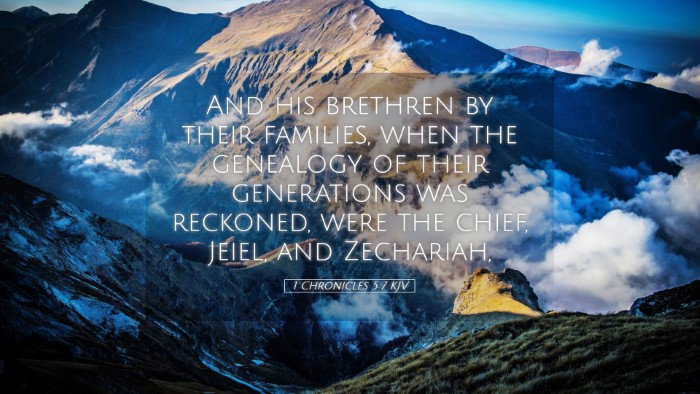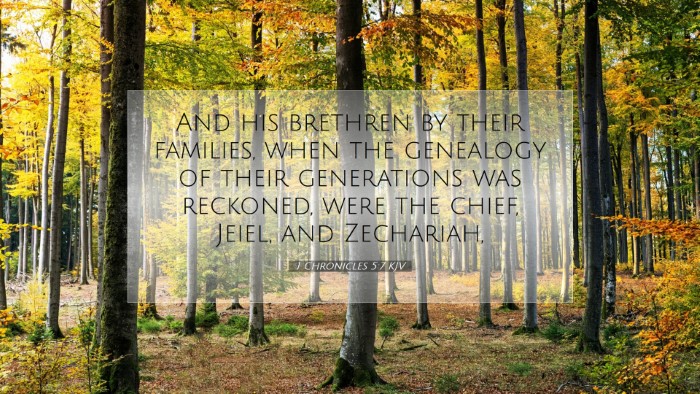Commentary on 1 Chronicles 5:7
Verse: 1 Chronicles 5:7 - "And his brethren by their families, when the genealogy of their generations was reckoned, were in the book of the Chronicles, even until the chief of the captains." (KJV)
Introduction
This verse is situated within a genealogical context that outlines the families of the tribes of Israel, particularly focusing on the lineage of the tribe of Reuben. It underscores the importance of ancestral records and the role they play in establishing identity and heritage within the Israelite community.
Genealogical Importance
Genealogies serve several purposes in Scripture, and 1 Chronicles 5:7 exemplifies their significance:
- Historical Record: The chronicler lists the descendants of Reuben, emphasizing their inclusion in the larger narrative of Israel. As Matthew Henry notes, genealogical records affirm the continuity of God's covenant with His people.
- Identity and Heritage: In ancient Israel, lineage determined one’s identity and heritage. Albert Barnes points out that knowing one’s ancestry shaped personal identity, community standing, and tribal affiliation.
- Theological Significance: God’s faithfulness is portrayed through the preservation of these lineages, as seen in Adam Clarke’s commentary, which highlights that God's promises were fulfilled through these familial lines despite the individuals' shortcomings.
Insights from Commentators
The contributions of several noted biblical commentators provide greater depth to the understanding of this verse:
Matthew Henry
Matthew Henry emphasizes the significance of Reuben's lineage. He reflects on how, despite Reuben’s moral failings (such as the infamous incident regarding Bilhah), God preserved the tribe for His divine purposes. Henry suggests that this preservation illustrates God's grace in using imperfect people to fulfill His plans.
Albert Barnes
Barnes notes the phrase "even until the chief of the captains" symbolizes a continuation of leadership roles within Reuben’s descendants. He asserts that the inclusion in the book of Chronicles not only records names but also reflects their contributions to Israel’s history. These leaders were part of God’s larger plan, exemplifying the idea that every believer has a part in the unfolding history of salvation.
Adam Clarke
Clarke comments on the significance of "his brethren by their families,” indicating that kinship bonds were central to Israel’s societal structure. He highlights that knowing family ties was crucial for understanding Israel’s social fabric and governance. Clarke points out that it also reflects the ongoing recognition and honor of families throughout generations.
Theological Implications
1 Chronicles 5:7 opens up a dialogue regarding the theology of lineage, communal identity, and divine sovereignty:
- God’s Sovereignty: The meticulous recording of genealogies illustrates that history is under God’s control. Every person mentioned has a significant role, reflecting the principle that God orchestrates events and assigns purpose in ways beyond human understanding.
- Redemption and Grace: Just as Reuben’s line continues despite past failings, so too does God’s redemptive work through history. The preservation of names represents hope and the assurance that none are outside the reach of God's grace.
- The Community of Faith: The mention of families emphasizes that faith is passed through generations. It highlights the communal aspect of faith where families play roles in nurturing and sustaining belief.
Application for Today
Pastors, theologians, and students can draw numerous applications from this verse:
- Understanding Heritage: Contemporary Christians are encouraged to reflect on their spiritual heritage. Just as Reuben’s lineage played a role in God's salvific plan, today’s believers can explore their own histories to better understand God’s faithful work.
- Emphasizing Community: In a world that often promotes individualism, this verse serves as a reminder of the importance of community and familial bonds in the life of faith.
- God’s Legacy of Grace: The verse reminds us of God's faithfulness to those who may seem unworthy. This encourages a broader understanding of who can be part of God’s family, emphasizing grace available to all regardless of past failures.
Conclusion
In conclusion, 1 Chronicles 5:7 serves as a rich source of theological and practical insight. By examining the historical, communal, and divine aspects of this genealogy, we are reminded of God's unchanging nature and the significance of community in His redemptive plans. Through the reflections of noted biblical commentators, the verse challenges believers to appreciate their heritage and understand their role in God’s ongoing story of redemption.


